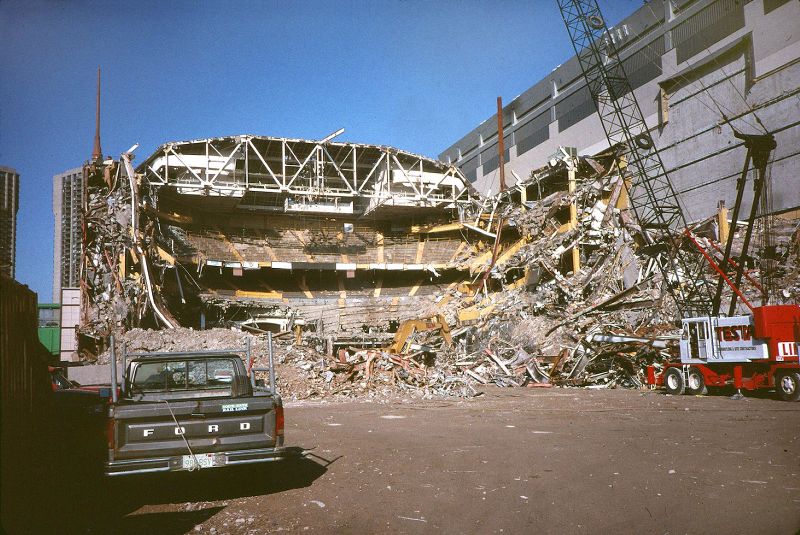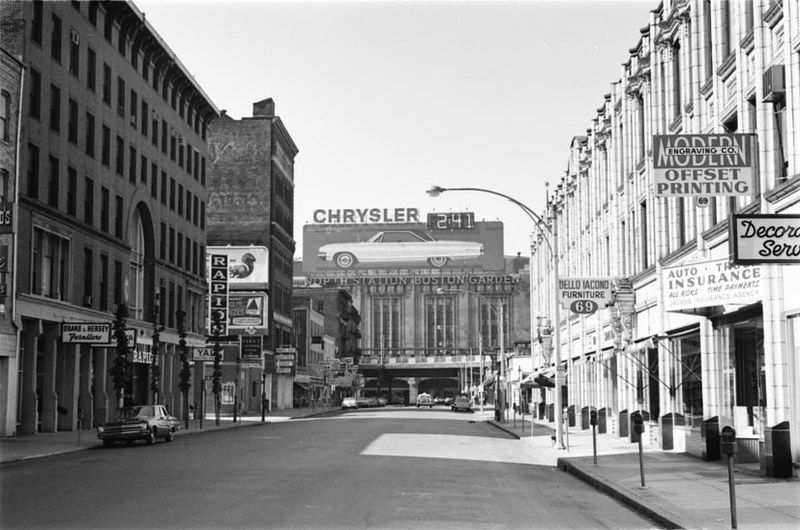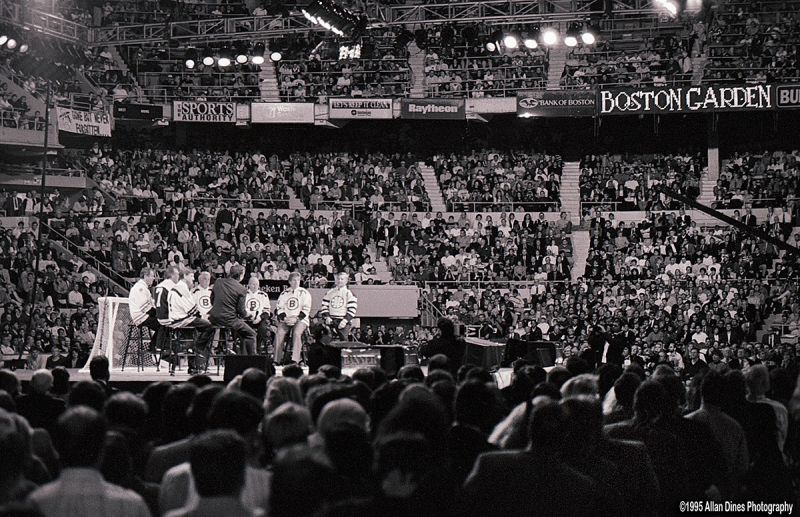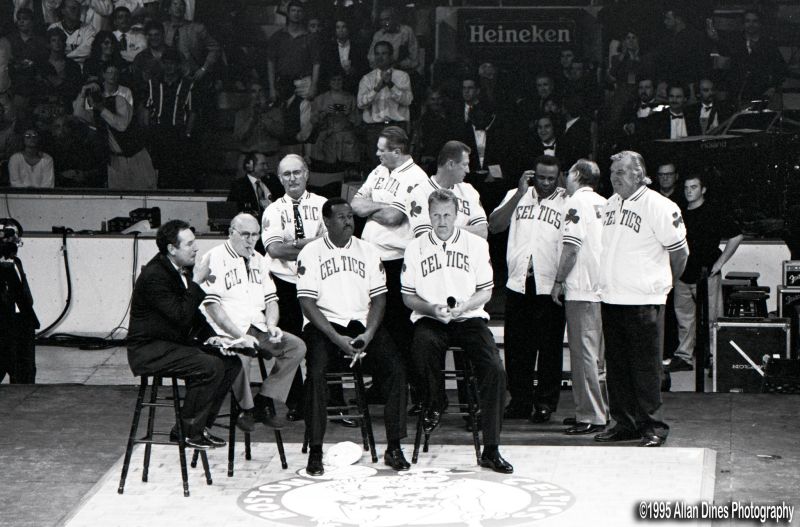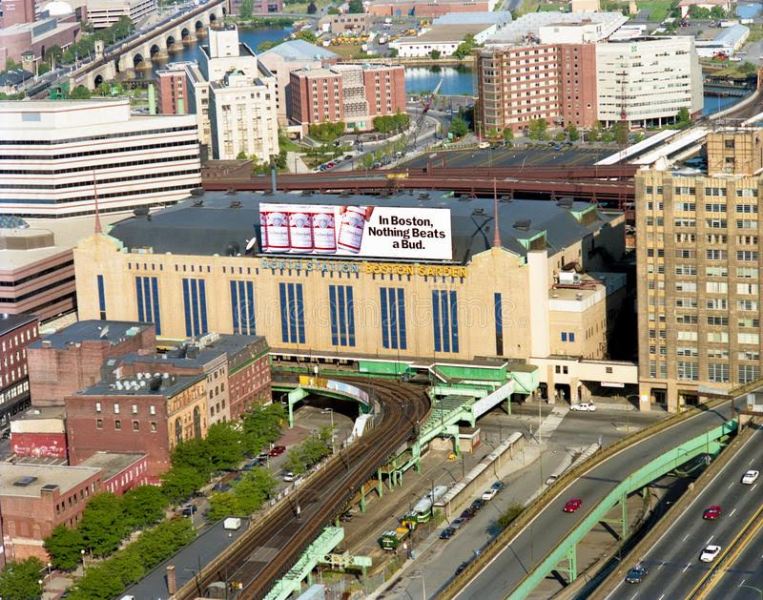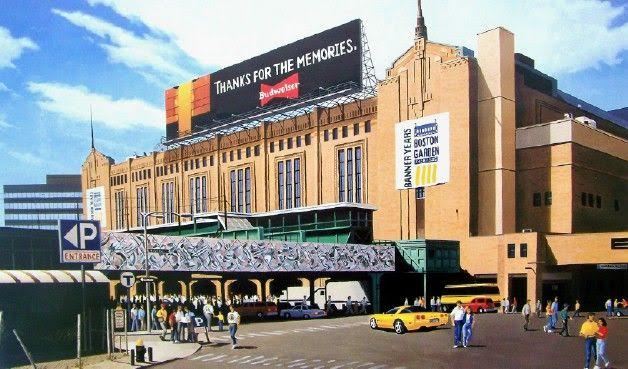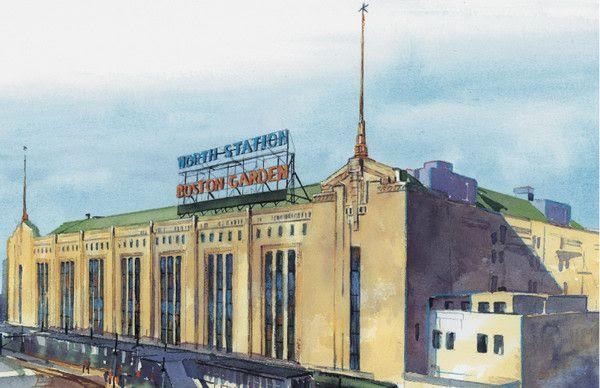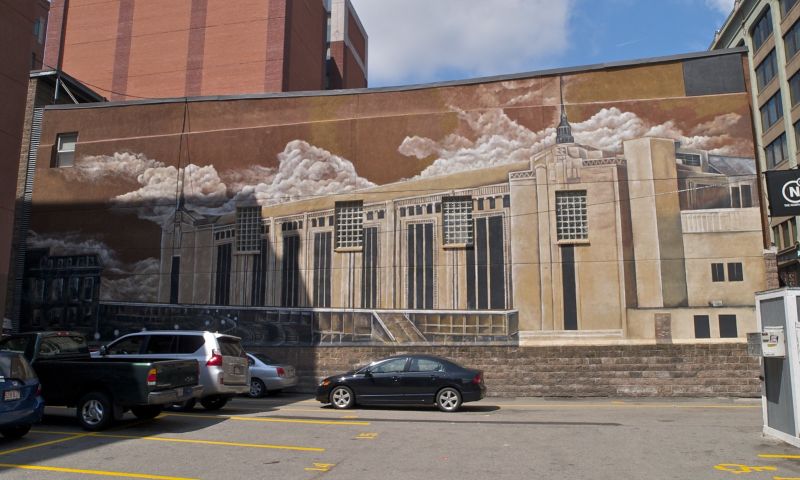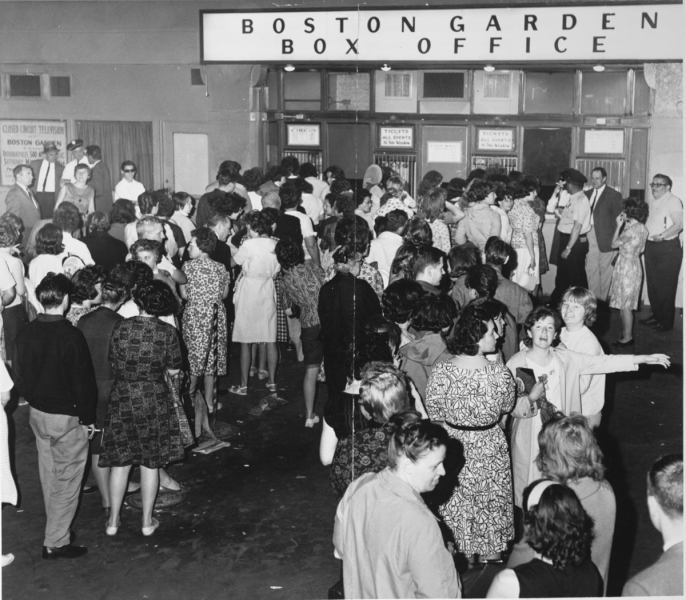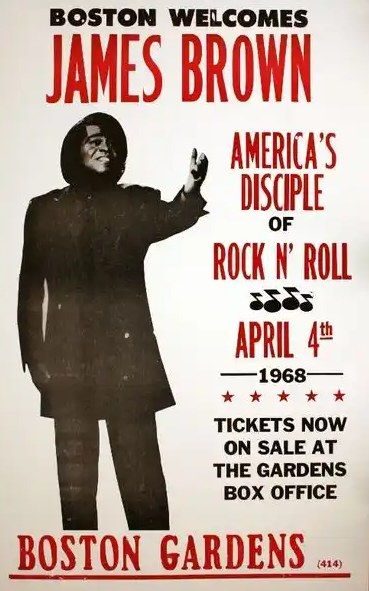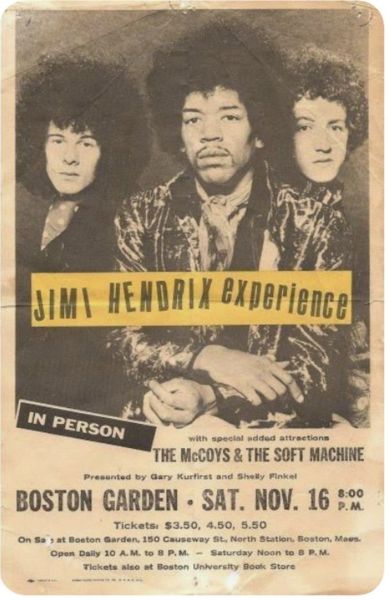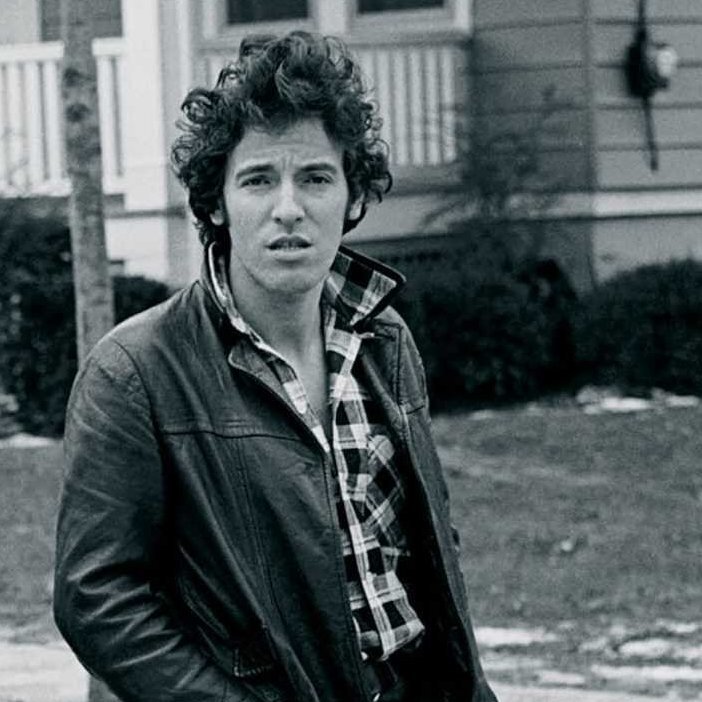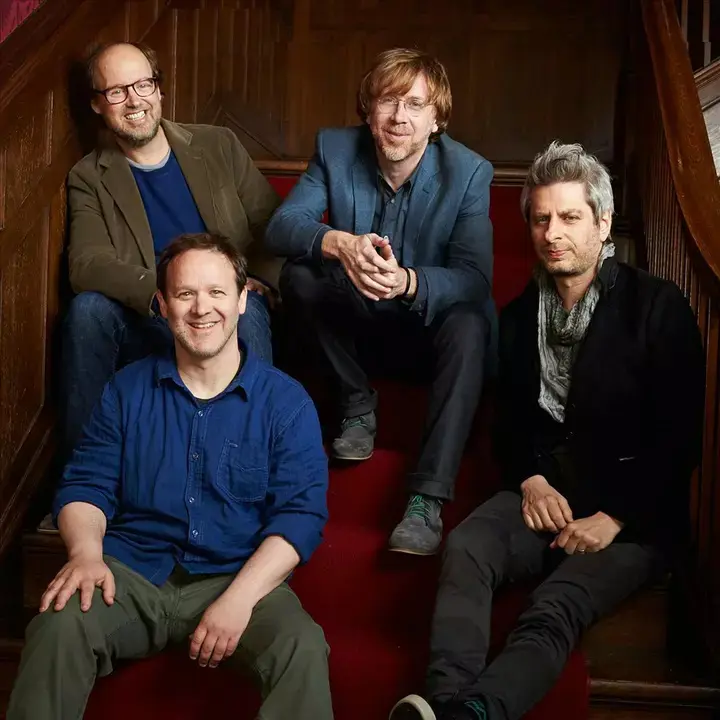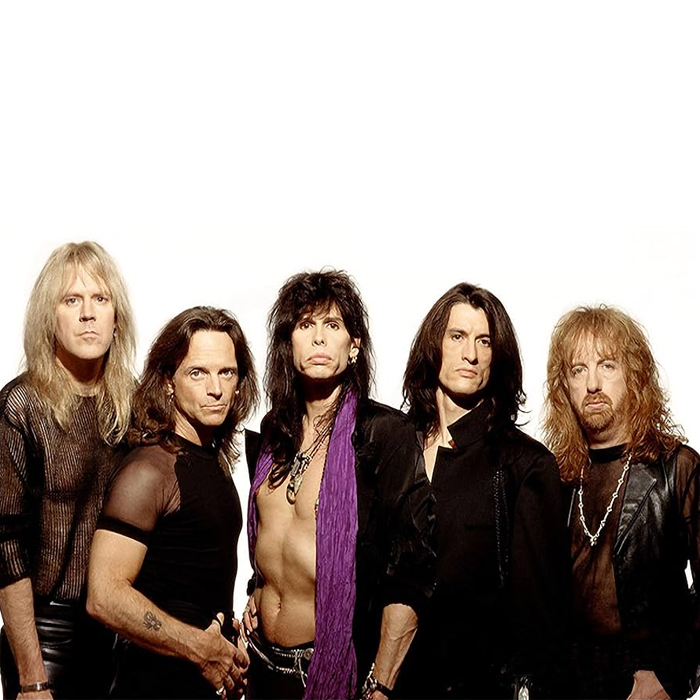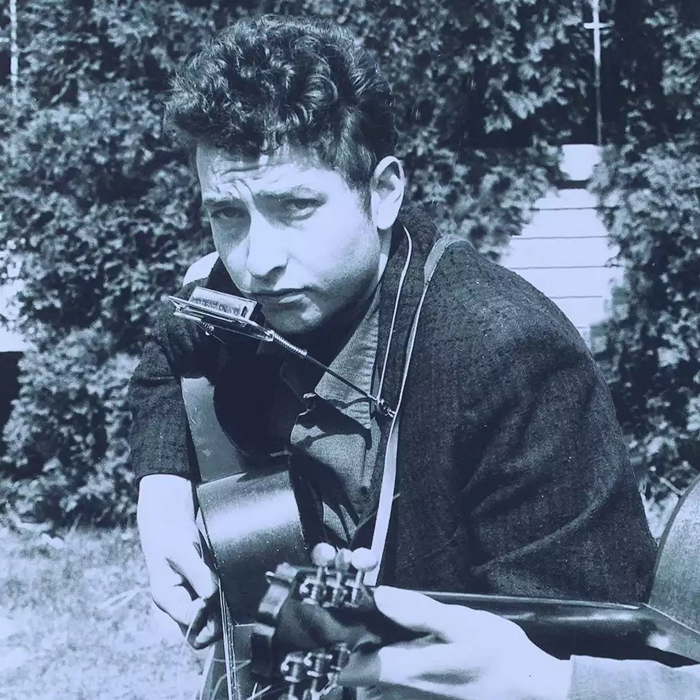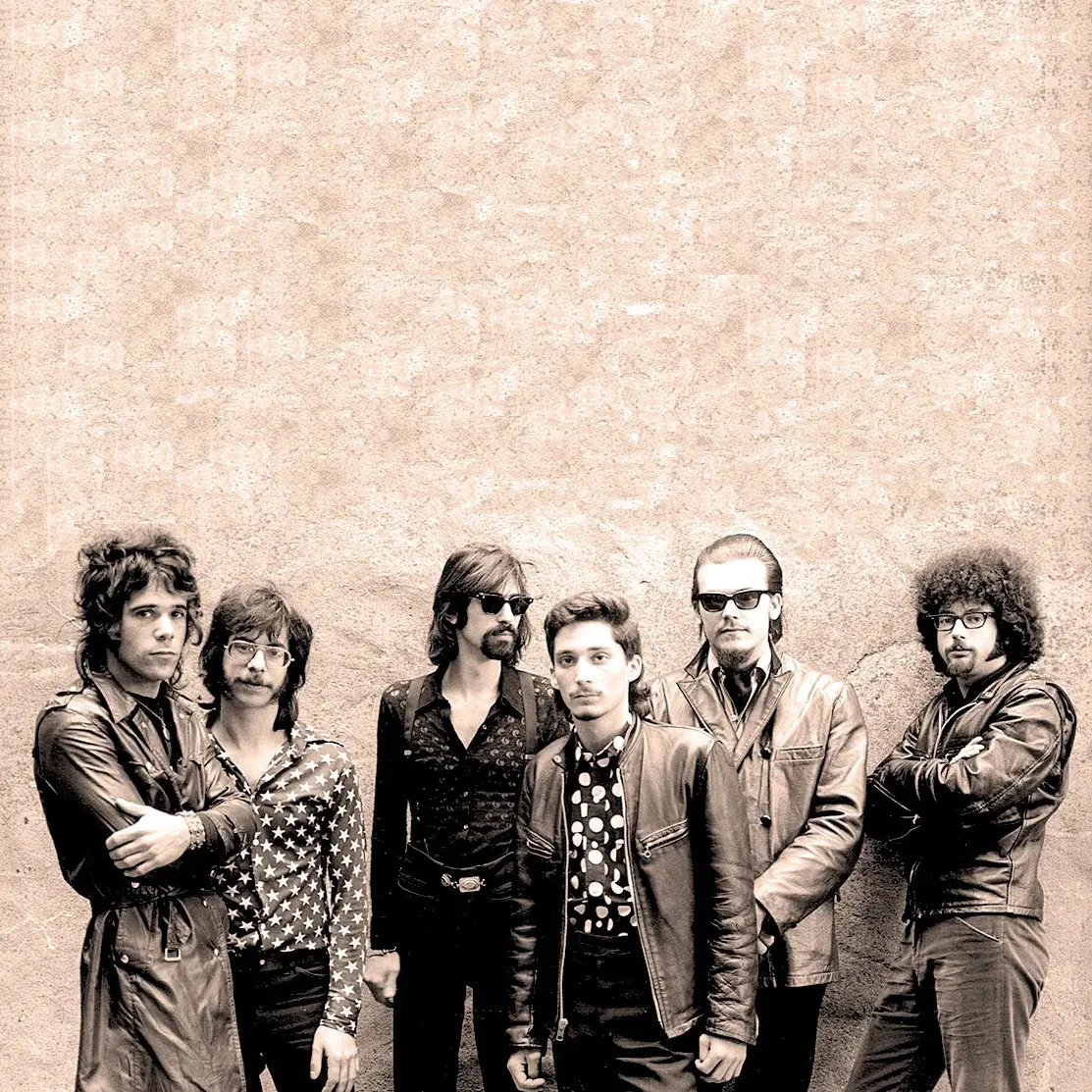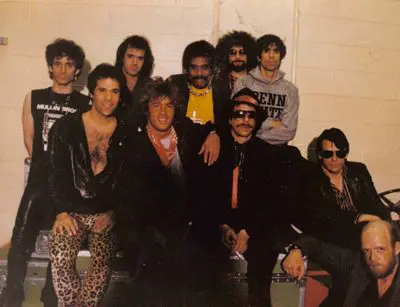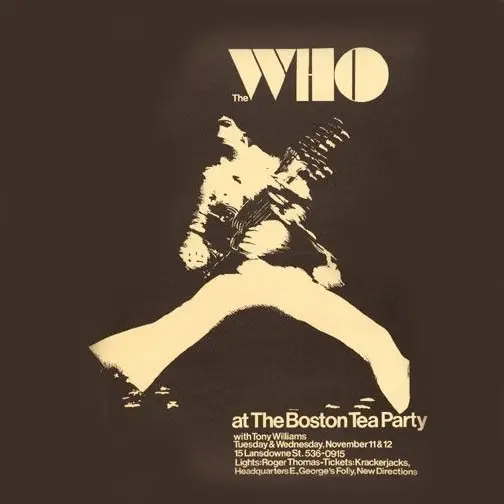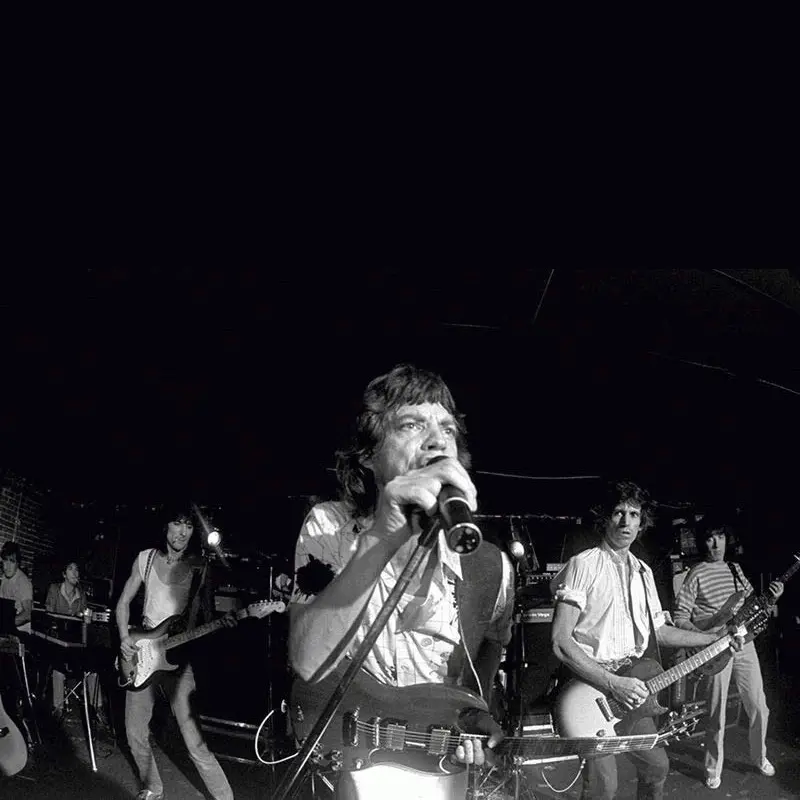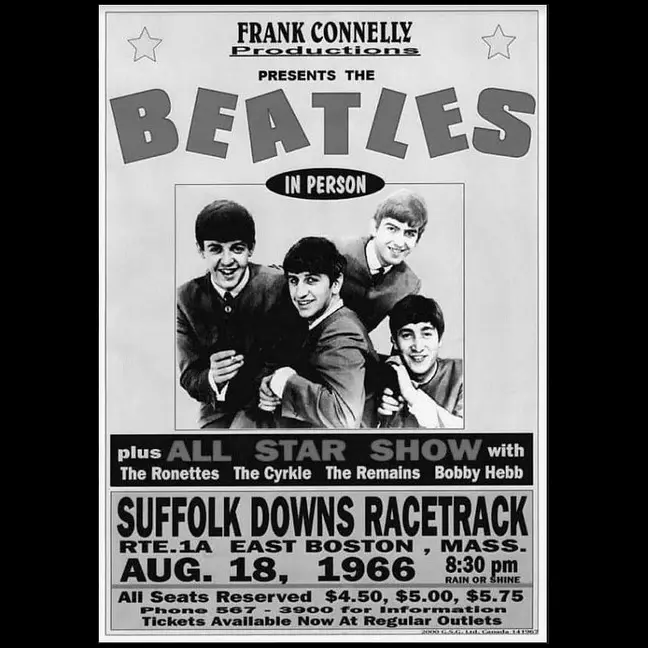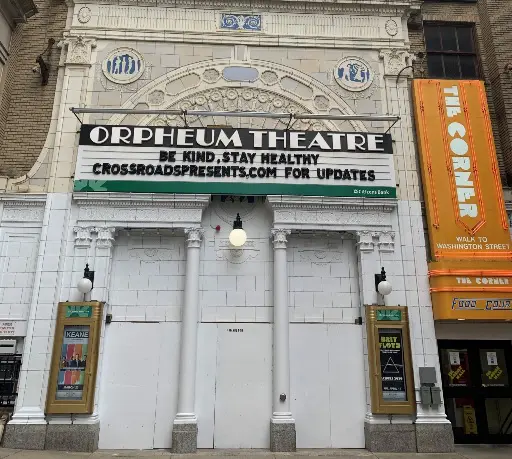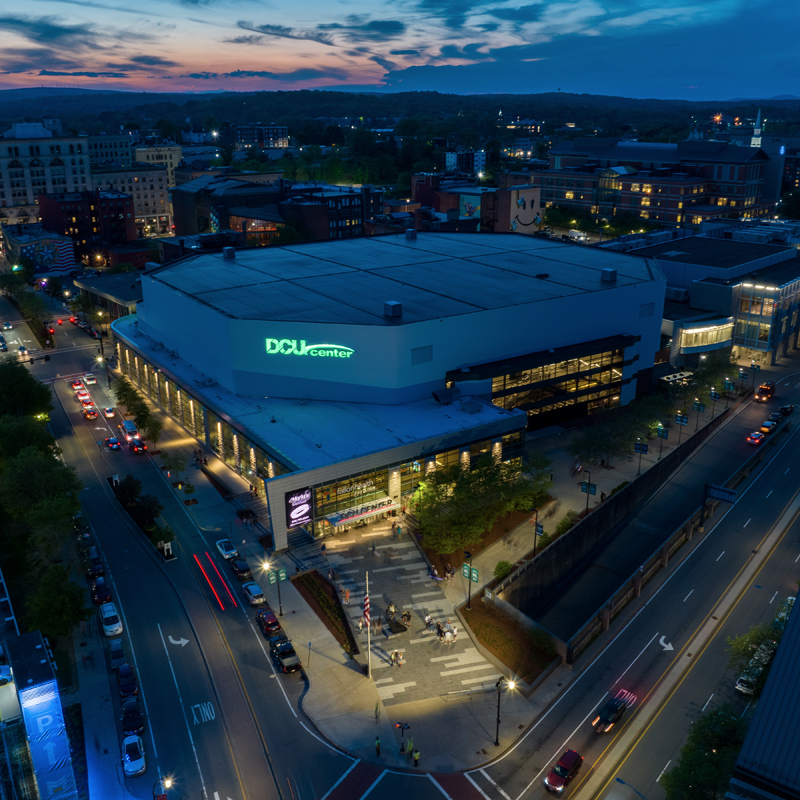Boston Garden
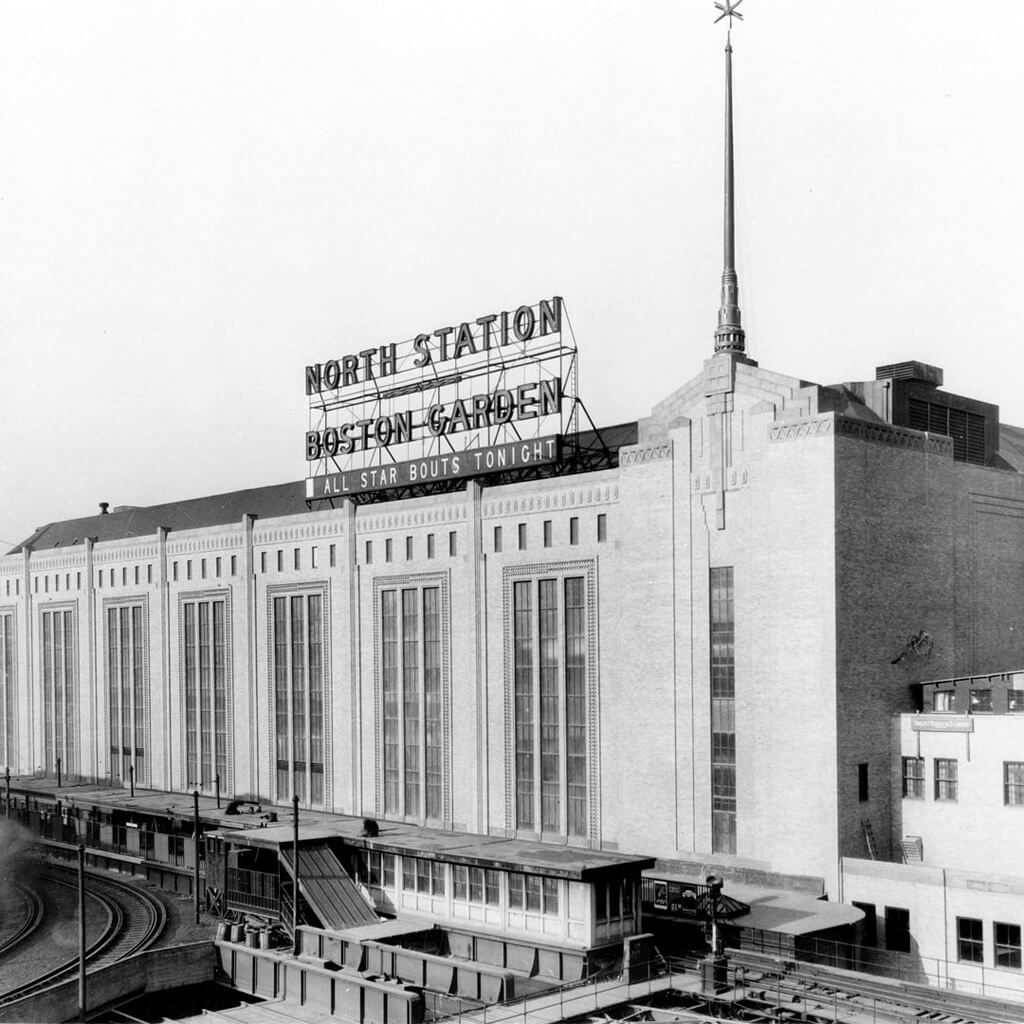
Boston Garden, called simply “the Gahden” or “the Gahdens” by locals, was a mecca for millions of New Englanders and countless others from across North America spanning multiple generations. For many, that statement sparks fond memories of basketball and hockey but for others – perhaps even a slight majority – what pops to mind more instantly than sports is Boston Garden’s singular place in the history of popular music, which evolved over its 67-year existence through the hundreds of concerts and associated momentous events that happened within its hallowed, if crumbling, walls.
When it comes to popular music, no other major venue in New England comes remotely close to being as famous, as revered, as cherished, or as historically significant as Boston Garden. From The Beatles‘ appearance in 1964 (on their first North American tour), James Brown’s in 1968 (the night after Martin Luther King Jr.’s assassination) and Elvis’ in 1971 to The Rolling Stones almost pulling a no-show in 1972, The Who following suit in 1973 and Aerosmith’s blistering New Year’s Eve gigs in 1989/90 and 1993/94, calling the Garden “legendary” is in no way an exercise in exaggeration.
Opening, Cost, Capacity, Ownership, Management
Built over North Station and specifically with boxing in mind, Boston Garden opened November 17, 1928, as Boston Madison Square Garden, which was shortened to Boston Garden shortly thereafter. It was designed by boxing promoter Tex Rickard, who’d overseen the renovation of Madison Square Garden and whose vision of the venue was as a boxing fan’s dream, promising that every seat would be close enough to the ring for people to “see the sweat on the boxers’ brows.” This physical proximity to the action also created spectacular acoustic effects that would eventually beg more than just sporting events.
Built for $10 million (about $176 million in 2023), the arena was owned by the Boston & Maine Corporation, which built it concurrently with and directly above their new flagship rail hub, North Station, as a novel way to attract passengers. Named on a 25-year lease for the roughly 14,500-seat space were Rickard, Madison Square Garden executives John S. Hammond and William F. Carey, and Boston-based sports promoters Charles F. Adams and Huntington Hardwick. Exhibition promoter Sheldon Fairbanks of Dorchester was the first general manager.
Non-musical Events, First Concerts
The Garden hosted a smorgasbord of events other than music, from boxing and wrestling to ice shows and circuses, as well as political rallies, including one starring Senator John F. Kennedy on November 7, 1960, the day before he was elected US president. In 1928, it became home to hockey’s Boston Bruins and then, in 1946, to basketball’s Boston Celtics; an eye-popping collection of championship banners hung in the rafters. It was also home ice for the short-lived Boston Braves hockey franchise from 1971-1974.
Despite its sports-related notoriety, for throngs of New Englanders, Boston Garden also became synonymous with popular music. The first concert was held in 1932 when Vermont-born Rudy Vallée and his orchestra performed. He returned in 1938 for a standing-room-only “battle of the bands” with the Benny Goodman Orchestra.
The first rock concert was held in 1956, when trailblazing disk jockey Alan Freed hosted the “Biggest Rock ‘n Roll Show of 1956” featuring Bo Diddley, Bill Haley & His Comets, the Platters and other chart busters. The Beatles brought more far-reaching attention to the Garden when they performed there on September 12, 1964, as part of their first North American tour, which took them to 32 cities.
James Brown
On April 5, 1968, the day after Martin Luther King Jr.’s assassination, James Brown made the Garden famous worldwide, practically overnight. Only 2,000 attended the sold-out show after Boston Mayor Kevin White, worried about potential violence, asked people to refund their tickets and stay home to watch the performance on a frantically organized television broadcast instead. While many expected Brown to cancel the gig, the show went ahead and White stood alongside Brown on-stage at the start, asking the audience to remember King peacefully.
Brown’s support of White was widely credited with helping Boston remain relatively calm while riots swept other cities. In 2008, that performance was released on DVD as Live at the Boston Garden, April 5, 1968; that same year PBS/VH-1 aired the documentary The Night James Brown Saved Boston. Another notable and recorded concert was held there in 1971 when Elvis Presley made his sole appearance at the Garden and it was released on the album, Elvis: Like a Black Tornado – Live at Boston Garden 1971.
The Rolling Stones, The Who
In 1972, The Rolling Stones almost had to cancel a show at the Garden after Keith Richards and Mick Jagger were arrested earlier in the day in Warwick, Rhode Island for assaulting a photojournalist, but Mayor White jumped in once again to save the day by pressuring Warwick police to release them. Jagger and Richards were provided with a state-police escort and the band took to the Garden stage at 12:45 am, closing the show at 2:00 am with “Street Fighting Man.”
In 1973, The Who almost cancelled a show at the Garden after they were detained by Montreal police for trashing a hotel room there the previous night. They were released barely in time to make it on stage and expressed their contempt by dedicating “Won’t Get Fooled Again” to the Montreal police. Then, when the band returned to the Garden in March 1976 to play before a sold-out crowd of over 15,000 fans, Keith Moon collapsed at his drum kit during the second song and the show was canceled. Ironically, it was rescheduled for April Fool’s Day when the band delivered a “manic, frenzied performance,” according to a review in the Boston Globe. Given Moon’s notorious antics and his reputation as the band’s “class clown,” many fans thought his collapse in March was simply a prank.
“Banned in Boston,” Other Notable Concerts, Increasing Competition
Some bands were also “Banned in Boston,” meaning banned from the Garden. In 1975, Mayor White banned Led Zeppelin for five years after some Zep fans waiting to buy tickets vandalized the seating area, the rink’s ice and many of the refreshments stands. In 1976, KISS was banned for five years for refusing to comply with the Garden’s strict no-pyrotechnics policy after fire marshals had witnessed their flamethrowers hitting the ceiling at the nearby Orpheum Theatre the night before. In 1977, Pink Floyd was almost banned, also for using pyrotechnics, and the band members narrowly avoided arrest.
Other celebrated acts performed at the Garden through the decades including Frank Sinatra, Duke Ellington, Judy Garland, George Burns and Gracie Allen, Pavarotti, Liberace, The Dave Clark Five, Jefferson Airplane, Diana Ross & the Supremes, The Jackson 5, Bob Dylan, Queen, Rush, U2, Bruce Springsteen, the Grateful Dead, Guns N’ Roses and Jethro Tull. In November 1975, the J. Geils Band recorded what became part of their 1976 live album Blow Your Face Out – other parts being recorded in Detroit – and in February 1982 they returned to play three sold-out shows with Jon Butcher Axis as the opening act.
In the 1980s and early 1990s, the openings of the Centrum in Worcester (now DCU Center) and Great Woods (now Xfinity Center) caused a gigantic drop in the number of concerts at the Garden, and its comparatively horrendous acoustics and jam-packed sports schedule didn’t help matters. Pearl Jam played a sold-out show there in 1994 and Phish headlined the 1994/95 New Year’s Eve event, but Boston Garden’s nearly 60 years at the top of the charts were over.
Closing, Legacy
On September 28, 1995, after two decades of failed efforts to secure financing for desperately needed major repairs, Boston Garden closed its doors for good, replaced by the Fleet Center (now TD Garden). The Grateful Dead, who played the Garden 24 times – more than any other band – had been booked to play the venue’s final six concerts but the shows were cancelled after Jerry Garcia died in August.
The Garden sat vacant for three years before it was demolished in 1998, launching a collector’s market for original memorabilia that’s still going strong; in February 2022, one pair of the Garden’s notoriously comfort-free wooden chairs sold for nearly $4,000. Though its beer-soaked floors, obstructed views, back-breaking seats, dilapidated ceiling, and assortment of virtually unidentifiable odors are gone, for music lovers across New England and the greater US, “the Gahden” still stands – forevah!
(by D.S. Monahan)

